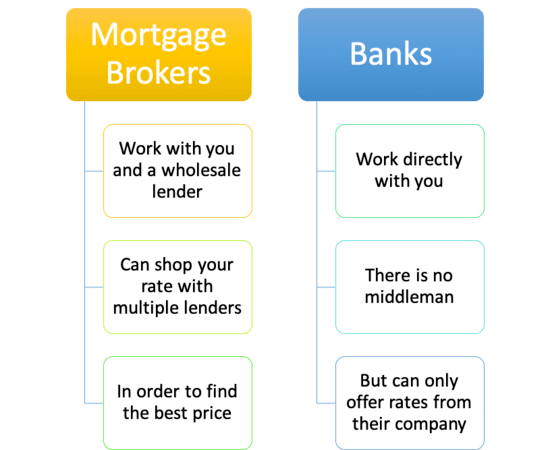Benefits of a Jumbo Loan for Luxury Realty Purchases
Benefits of a Jumbo Loan for Luxury Realty Purchases
Blog Article
Understanding What a Jumbo Finance Entails and Exactly How It Differs From Standard Financings
Navigating the ins and outs of jumbo loans discloses a financing choice tailored for those venturing into high-value genuine estate, typically going beyond the limits established by the Federal Housing Financing Company. The substantial threat associated with big fundings requires much more strict qualification demands, including greater credit history ratings and substantial down repayments.
Meaning of Jumbo Financings
Jumbo lendings are a sort of home mortgage that go beyond the conforming car loan limitations set by the Federal Real Estate Finance Agency (FHFA) These loans satisfy consumers that need to finance homes that are extra expensive than what conventional lending limitations allow. The FHFA develops yearly adhering funding restrictions, and any kind of car loan surpassing these thresholds is classified as a big car loan.
Normally, jumbo fundings are utilized in high-cost real estate markets where home prices dramatically surpass national averages, such as in cosmopolitan areas or deluxe real estate sectors. As these car loans are not qualified for purchase by Fannie Mae or Freddie Mac, they bring inherent threats for lending institutions because of their bigger dimension and non-conformity (jumbo loan). Lenders often impose extra rigorous credentials standards for jumbo car loans than common adjusting finances.
Borrowers looking for jumbo financings need to normally show a solid financial profile, including a higher credit history, durable income confirmation, and significant down repayment, typically 20% or more. Furthermore, lending institutions may require extra extensive paperwork to assess the consumer's ability to take care of bigger month-to-month settlements. Comprehending the details features of big financings is vital for possible borrowers navigating this section of the home loan market.
Conventional Loans Summary
While jumbo finances deal with high-value residential or commercial property financing, conventional car loans stand for the more common home mortgage choice in the real estate market. These fundings are not guaranteed or assured by any kind of government entity, such as the Federal Real Estate Management (FHA) or the Division of Veterans Matters (VA) Rather, they are backed by personal loan providers and abide by standards established by government-sponsored ventures (GSEs) like Fannie Mae and Freddie Mac.
Traditional fundings are usually supplied with repaired or flexible rates of interest and vary in regards to duration, typically spanning 15 to three decades. Customers typically choose standard lendings for their predictable month-to-month payments, which can assist in long-term economic preparation. Additionally, they are readily available for main residences, second homes, and financial investment buildings, providing adaptability to satisfy varied borrower requirements.

Secret Differences Between Fundings
Recognizing the nuances between different kinds of loans is crucial for possible buyers browsing the complex home mortgage landscape. At the forefront of this decision-making process are big fundings and traditional financings, each possessing unique qualities and offering various borrower demands. The key difference relaxes in the loan amount. Big lendings exceed the adhering financing limits useful source set by the Federal Real Estate Finance Agency (FHFA), which vary by area. On the other hand, traditional finances abide by these limits and are normally bought by government-sponsored entities like Fannie Mae and Freddie Mac.

Additionally, the deposit requirements can vary considerably. Jumbo fundings usually call for bigger deposits, often going beyond 20%, to reduce threat. Traditional finances, alternatively, might permit lower down settlements, with some programs approving as low as 3% for certified purchasers.
Credentials Needs
Securing a big finance includes meeting much more strict qualification requirements contrasted to traditional lendings, mirroring the boosted risk to lenders. These financings, which surpass the adhering funding limits set by the Federal Housing Financing Agency (FHFA), are not eligible for acquisition by Freddie Mac or Fannie Mae, therefore subjecting lending institutions to better monetary threat - jumbo loan. Therefore, borrowers need to demonstrate a high creditworthiness and financial security
A durable credit rating, commonly 700 or higher, is vital for authorization. Lenders likewise expect a reduced debt-to-income (DTI) proportion, commonly not exceeding 43%, ensuring that consumers can manage substantial monthly payments together with other monetary responsibilities. A substantial money get is generally called for, generally amounting to six months of home mortgage payments, to assure lending institutions of the debtor's financial strength.
Down settlement expectations are also raised, regularly starting at 20% or more of the building's worth. While this is a protect for lending institutions, it necessitates significant ahead of time resources from borrowers.
Selecting the Right Financing
When selecting the visit homepage most appropriate lending choice,Navigating the complexity of jumbo loans needs cautious factor to consider. With the broader variety of alternatives available to those looking for big financings, the decision-making process ought to involve a thorough evaluation of one's financial profile and long-lasting goals. Unlike standard lendings, jumbo loans usually include stricter requirements and differed rate of interest, which demand detailed research and a clear understanding of one's monetary standing.
When picking in between various jumbo financing offerings, it is imperative to examine the loan terms, including passion rates, payment routines, and connected charges. Borrowers need to contrast the rates supplied by different lending institutions to ensure they secure the most desirable terms. In addition, comprehending the implications of dealt with versus variable-rate mortgages (ARMs) is essential, as each choice provides distinctive advantages and dangers depending upon market conditions and individual economic methods.
Engaging with a monetary consultant or home loan broker can offer useful insights tailored to private scenarios. These experts can assist in browsing read here the subtleties of big loans, ensuring that debtors are knowledgeable and equipped to select a finance that straightens with their financial purposes, ultimately helping with a smoother home-buying procedure.
Verdict
In recap, jumbo fundings act as a financial tool for obtaining high-value buildings, requiring stringent eligibility demands and greater interest rates as a result of the elevated risk for lending institutions. Unlike standard car loans, which comply with FHFA limits and might obtain backing from Fannie Mae or Freddie Mac, jumbo lendings require a minimum credit rating of 700 and substantial deposits. Recognizing these distinctions is important for debtors in high-cost property markets to establish one of the most suitable lending alternative for their needs.
The FHFA develops annual conforming lending limits, and any kind of loan going beyond these limits is classified as a big lending.
At the leading edge of this decision-making process are jumbo car loans and traditional financings, each having distinct features and serving various customer needs.Safeguarding a jumbo finance includes meeting much more strict qualification needs contrasted to traditional car loans, showing the raised danger to lenders. Unlike conventional financings, big lendings often come with more stringent demands and differed rate of interest rates, which necessitate thorough research and a clear understanding of one's financial standing.
Unlike conventional fundings, which conform to FHFA limitations and may get backing from Fannie Mae or Freddie Mac, big fundings call for a minimum debt score of 700 and considerable down repayments.
Report this page